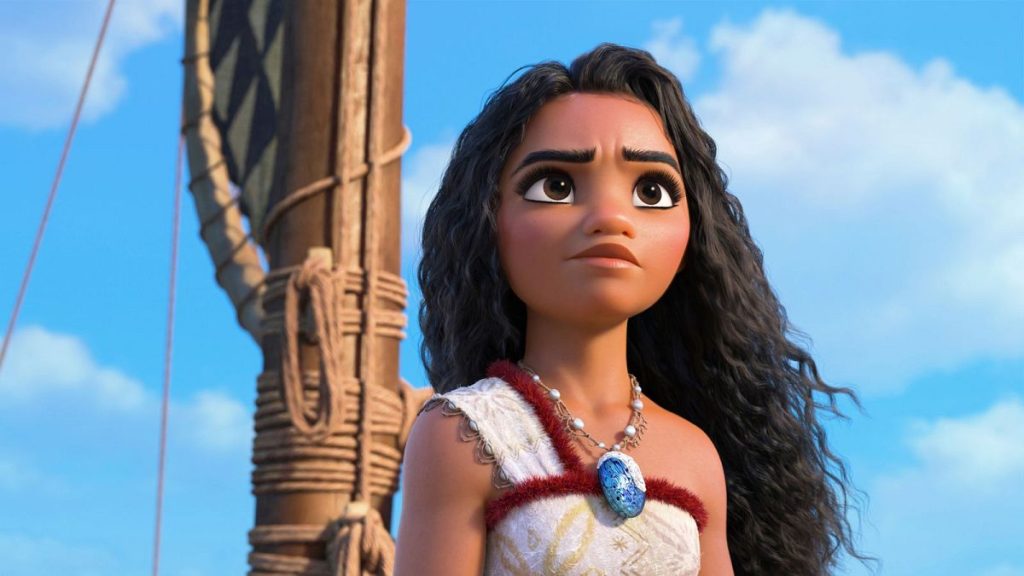A federal jury in Los Angeles has ruled in favor of Disney, concluding that the company did not infringe on copyright by creating the animated film Moana. The jury deliberated for approximately two and a half hours before unanimously deciding that the story concept presented by screenwriter Buck Woodall did not originate the material in question. Woodall, who filed a lawsuit claiming his 2011 screenplay, “Bucky the Wave Warrior,” influenced Moana, expressed disappointment after the verdict.
| Article Subheadings |
|---|
| 1) Overview of the Case and Verdict |
| 2) Details of the Allegations |
| 3) Arguments from Both Sides |
| 4) Significance of the Ruling |
| 5) Future Implications for Copyright in Animation |
Overview of the Case and Verdict
The courtroom drama surrounding the copyright lawsuit against Disney came to a swift conclusion on Monday when the jury ruled in favor of the entertainment giant. Jurors spent a mere two and a half hours reviewing the evidence and deliberating before unanimously deciding that Disney did not infringe on Buck Woodall’s claims regarding Moana. The film, which was released in 2016, gained widespread acclaim and commercial success, setting records in streaming hours and global viewership. The case brought forth significant questions about the originality of screenwriting and the nature of inspiration in the creative process.
Details of the Allegations
In 2020, Buck Woodall filed a lawsuit alleging that Disney had appropriated elements from his work titled “Bucky the Wave Warrior,” which he had created years earlier. According to Woodall, his screenplay featured a protagonist who interacts with a demigod and navigates a narrative filled with adventure and mystical elements similar to those found in Moana. Woodall asserted that he had shared materials related to his project with Jenny Marchick, then a development director at Mandeville Films, who he claims subsequently handed off that information to Disney. This connection formed the basis of his claims that Disney’s creation of Moana was a result of this unauthorized access to his concepts and ideas.
Arguments from Both Sides
During the trial, Woodall’s legal team emphasized a series of circumstantial evidence that they believed demonstrated a clear link between their client’s work and that of Disney. Woodall’s attorney, Gustavo Lage, argued passionately in closing remarks about the borrowed narrative elements, stating,
“There was no ‘Moana’ without ‘Bucky.’”
Conversely, Disney’s defense lawyer, Moez Kaba, contended that the creators of Moana, including renowned directors John Musker and Ron Clements, had no knowledge of Woodall’s screenplay. Kaba highlighted the distinctiveness of Disney’s creation, declaring it was an original work born out of decades of experience in animation and storytelling.
Significance of the Ruling
The jury’s decision is considered a landmark victory for Disney, solidifying its stance against allegations of copyright infringement that can often threaten creative industries. The ruling not only absolves Disney of any wrongdoing regarding Moana but also sets a precedent for how copyright claims are evaluated in the realm of animated storytelling. As the entertainment industry increasingly engages in complex adaptations and variations of creative works, this case underscores the importance of demonstrating clear access and similarity when pursuing infringement claims in court.
Future Implications for Copyright in Animation
The outcome of this trial may have lasting effects on the animation industry, particularly concerning how creators approach the development of new content. With the jury siding with Disney, the decision signals to potential plaintiffs that the burden of proof remains high in copyright infringement lawsuits, particularly in fields that thrive on shared cultural motifs and narratives. Going forward, creators might be more cautious when discussing ideas or sharing work with other industry professionals, knowing the potential legal ramifications of copyright disputes. Moreover, this ruling may inspire filmmakers to innovate further, relying on their unique voices and creativity to differentiate their work in an increasingly competitive landscape.
| No. | Key Points |
|---|---|
| 1 | The jury ruled unanimously that Disney did not infringe on Buck Woodall’s copyright. |
| 2 | Woodall claimed Disney’s Moana was based on his 2011 screenplay, “Bucky the Wave Warrior.” |
| 3 | The jury deliberated for only two and a half hours before reaching their verdict. |
| 4 | Disney’s creators maintained that they had no prior knowledge of Woodall’s work. |
| 5 | The ruling reflects a significant moment in copyright law as it pertains to the animation industry. |
Summary
The verdict from the Los Angeles federal jury represents a crucial juncture in the ongoing dialogue regarding copyright infringement in the entertainment industry. While Buck Woodall’s allegations were aimed at protecting his creative work, the findings demonstrate the complexities involved in establishing claims of stolen ideas within a field characterized by shared motifs and inspirations. As the landscape continues to evolve, this ruling serves both as a warning and a clarion call for creators to strengthen their claims and foster originality in their projects.
Frequently Asked Questions
Question: What was the basis of Buck Woodall’s lawsuit against Disney?
Buck Woodall alleged that Disney’s Moana was based on his screenplay titled “Bucky the Wave Warrior,” which he claimed he had shared with a former Disney development director.
Question: How did the jury decide in the copyright case?
The jury ruled unanimously in favor of Disney after deliberating for approximately two and a half hours, concluding that there was no copyright infringement.
Question: What implications does the ruling have for the animation industry?
The ruling sets a precedent for copyright cases in the animation sector, emphasizing the difficulty of proving infringement and potentially affecting how creators share their ideas in the future.


